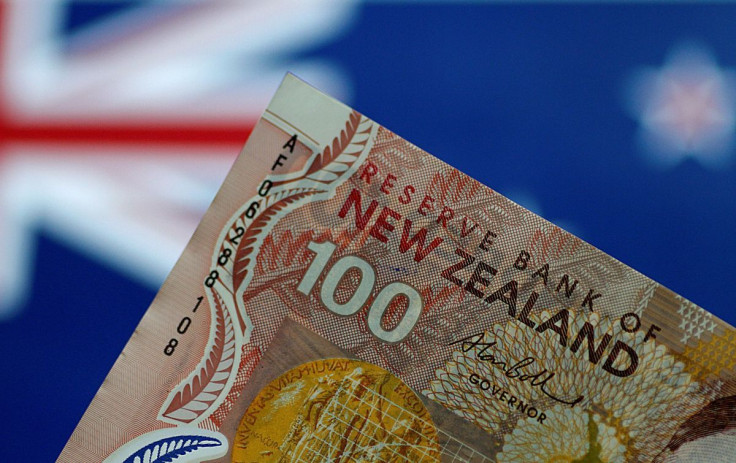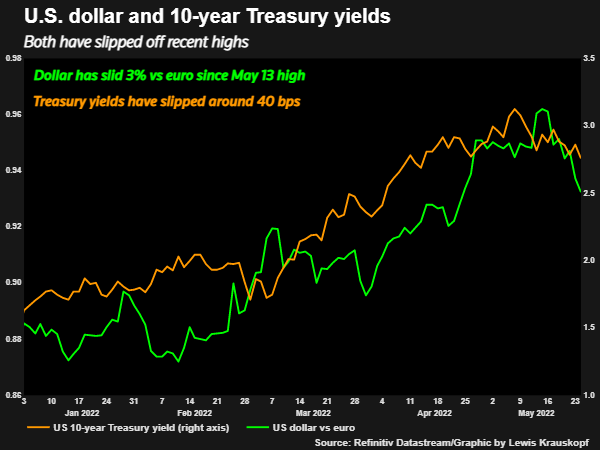Dollar Rises Off Of 1-month Low Ahead Of Fed Minutes

The U.S. dollar snapped a two-day losing streak on Wednesday ahead of the release of the minutes from the U.S. Federal Reserve's May meeting, which investors will parse for clues about further interest rate hikes.
The minutes are due at 2 p.m. EDT (1800 GMT). U.S. Federal Reserve Chair Jerome Powell has promised to continue hiking rates until there is clear and convincing evidence that inflation is under control.
"In particular, Chair Powell has reiterated on several occasions the Fed's guidance of implementing additional 50bp rate hikes at the June and July FOMC meetings, and we expect the May meeting minutes to provide further color about those plans," strategists from TD Securities said in a note to clients.
U.S. 10-year Treasury yields, which hit 3-1/2-year highs earlier in May, have since fallen some 40 basis points. Treasury yields briefly hit six-week lows on Wednesday after data showed new orders for U.S.-made capital goods rose less than expected in April.
The U.S. dollar index, which measures the greenback against a basket of peer currencies, was up 0.491% at 102.25, at 10:15 a.m. (1415 GMT).
The dollar had fallen to a one-month low on Tuesday after European Central Bank chief Christine Lagarde flagged an end to negative interest rates in the euro zone in the third quarter.
GRAPHIC: Dollar and Treasuries (

)
Lagarde's comments implied an increase of at least 50 basis points in the deposit rate and fueled speculation of bigger hikes this summer.
But while that lifted the euro to one-month highs of $1.0748 on Tuesday, it slipped 0.64% on Wednesday, to $1.0666.
ECB board member Fabio Panetta took some steam out of the single currency when he warned of a "normalisation tantrum" caused by taking interest rates to "neutral" settings.
Dutch central bank chief Klaas Knot, meanwhile, said the ECB may not discuss reducing its balance sheet this year, as it focuses on rate hikes
The euro also pulled back 0.4% against the Swiss franc, which has firmed in recent days after Swiss central bank officials said they would not hesitate to tighten policy if inflation stayed above target ranges.
Elsewhere, the Reserve Bank of New Zealand became the latest central bank to raise interest rates by half a point. While that move was expected, it also provided hawkish guidance on its policy path, noting a larger and earlier hike reduced the risk of inflation becoming persistent.
That had helped the kiwi dollar rise as much as 0.8% at one point to a three-week peak of $0.6514. But as the U.S. dollar gained momentum, the kiwi ceded most its gains, last trading up 0.01% at $0.6461.
"The RBNZ move shows central banks are not in a mood to slow down. Conditions are pretty tight in a lot of G10 economies, and it's a hint that in the short term policy tightening will remain aggressive," said Colin Asher, senior economist at Mizuho in London.
© Copyright Thomson Reuters 2024. All rights reserved.




















